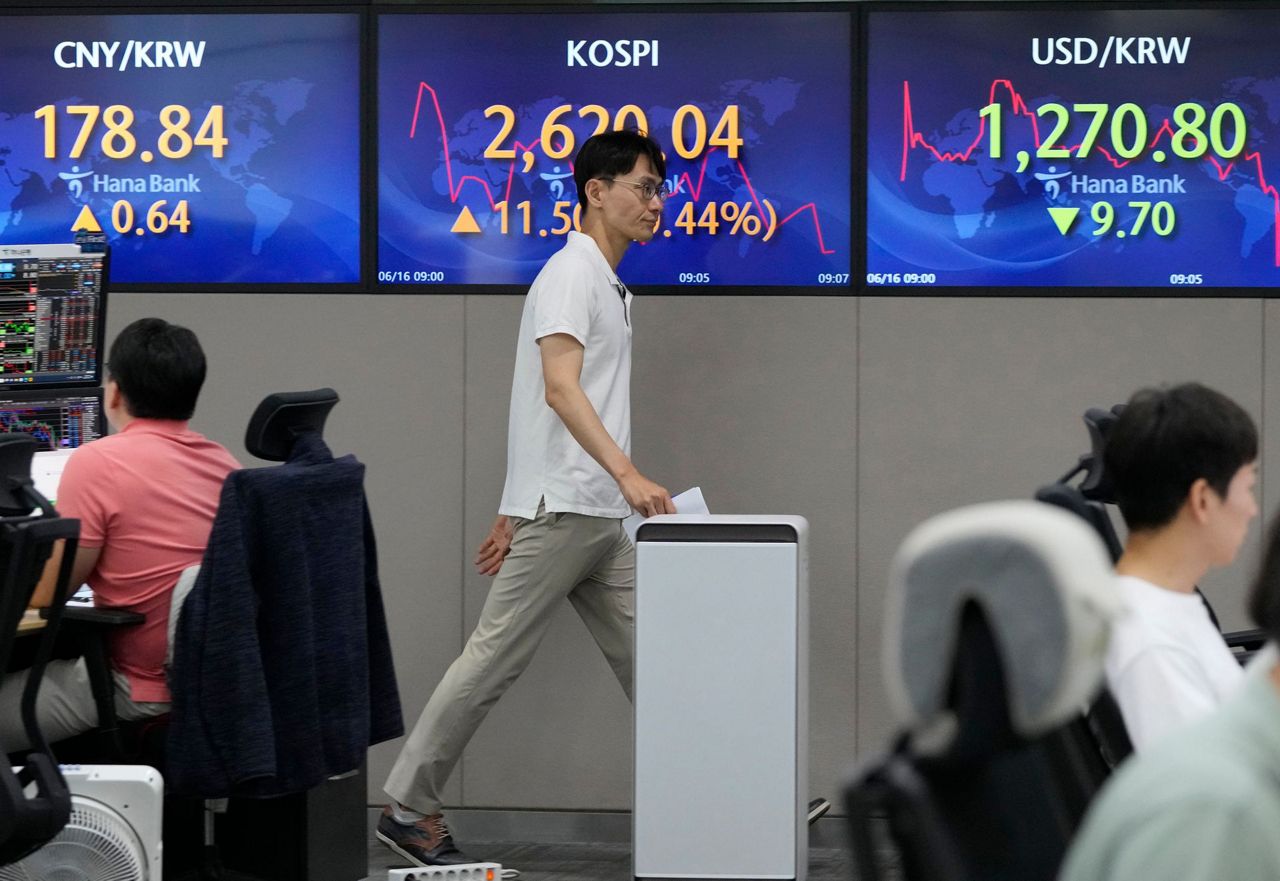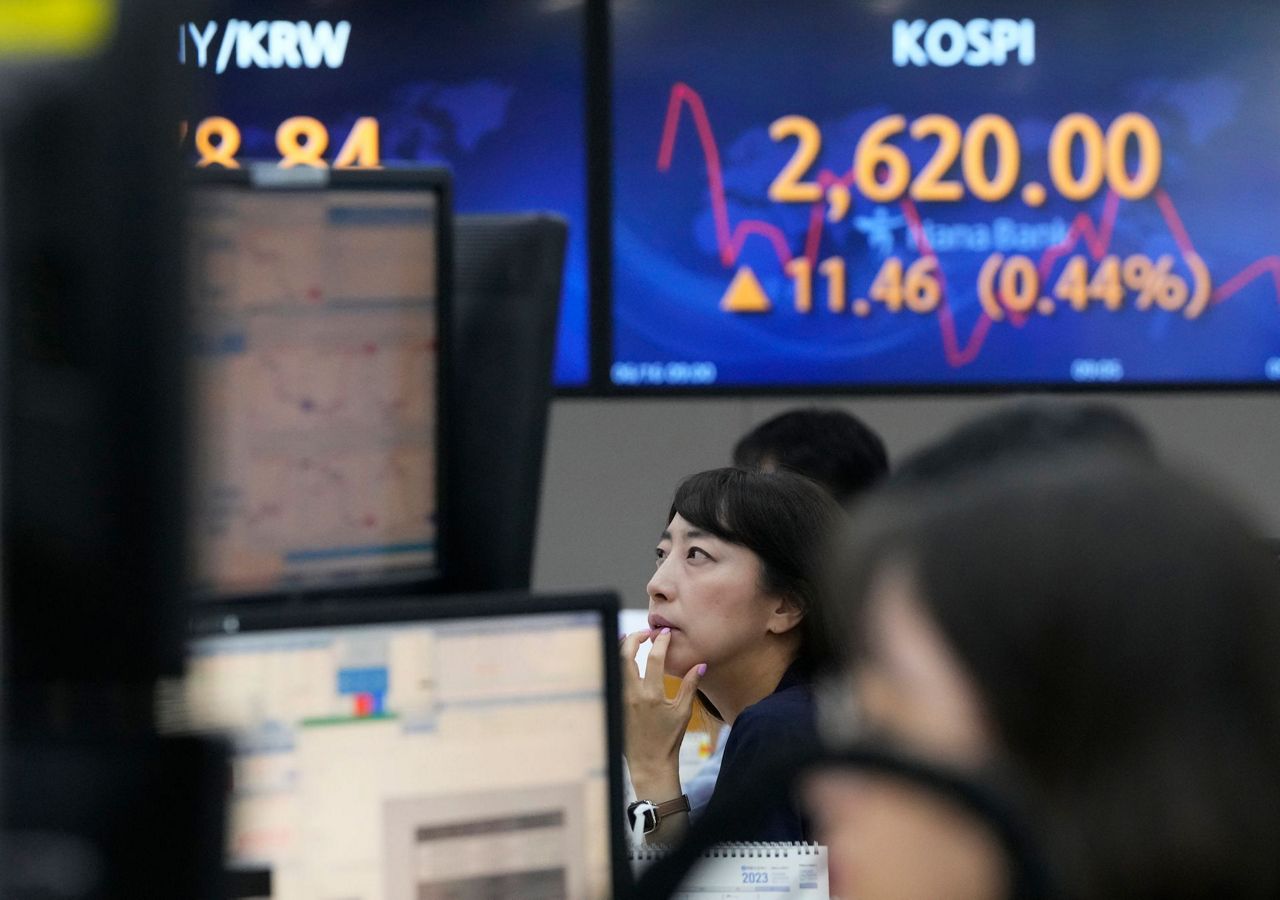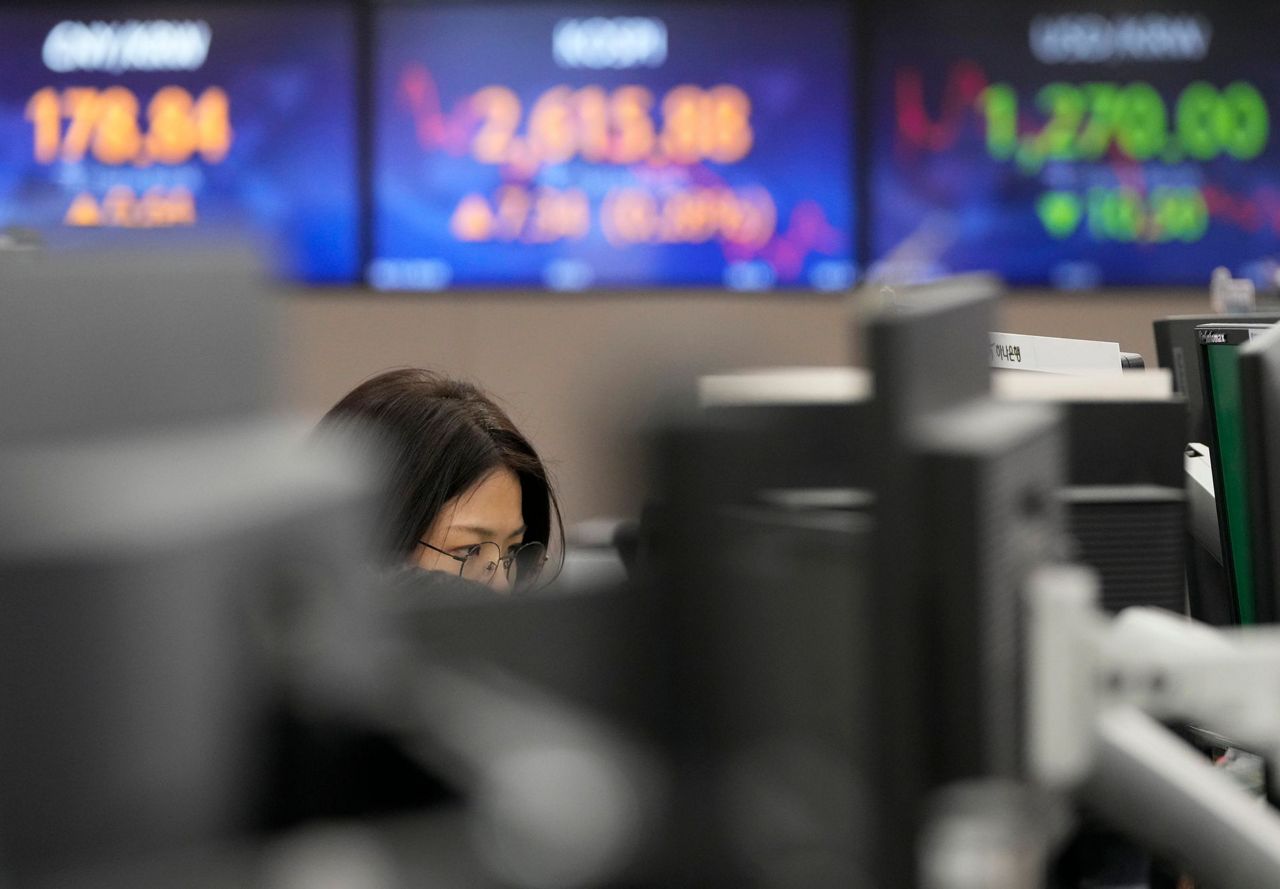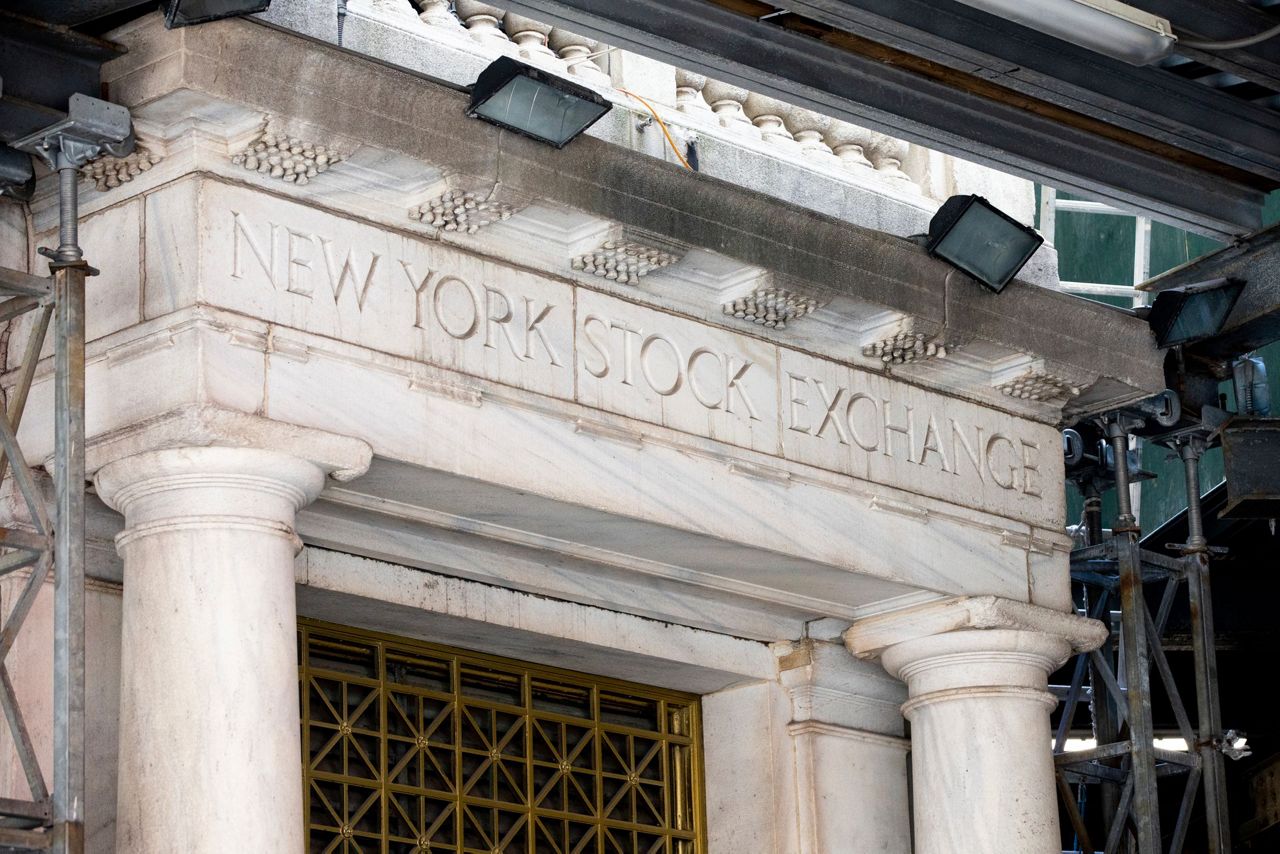BANGKOK (AP) — Asian shares logged moderate gains on Friday after Wall Street benchmarks swept higher, extending their longest rally in a year and a half.
The Bank of Japan wrapped up a policy meeting by keeping its ultra-lax monetary stance unchanged, as expected. It is a standout among central banks, most of which have sought to rein in inflation by raising interest rates.
The key Japanese rate has stayed at minus 0.1% for a decade and policymakers have indicated they are not convinced that current inflation, which finally has surpassed the BOJ's target of about 2%, will be sustained.
“With extremely high uncertainties surrounding economies and financial markets at home and abroad, the Bank will patiently continue with monetary easing while nimbly responding to developments in economic activity and prices as well as financial conditions,” the BOJ said in a statement.
Tokyo's Nikkei 225 index edged 0.1% higher to 33,518.93. Share prices have been trading around their highest level in more than 30 years, while the Japanese yen has weakened against the dollar and other major currencies — reflecting the gap in interest rates in Japan and elsewhere.
The dollar rose to 140.50 yen from 140.29 yen late Thursday.
In other Asian trading, Hong Kong's Hang Seng index jumped 0.7% to 19,974.26 and the Shanghai Composite index was up 0.4% at 3,265.04. In Seoul, the Kospi advanced 0.4% to 2,620.40. Bangkok's SET added 0.4% and India's Sensex was up 0.4%.
On Thursday, the S&P 500 rallied 1.2% to 4,425.84, it's highest level since April 2022. The Dow gained 1.3% to 34,408.06 and the Nasdaq climbed 1.2% to 13,782.82.
Suggesting spending by consumers is holding up despite higher interest rates on credit cards and other borrowing, a report showed sales at U.S. retailers unexpectedly strengthened last month. Economists were forecasting a drop.
A separate report said slightly more workers applied for unemployment benefits last week than expected. Though the number is still relatively low compared with history, a tick higher could be a sign that a remarkably resilient job market is finally starting to loosen following the Fed’s barrage of rate hikes since early last year.
The market is still absorbing the Federal Reserve’s warning from a day earlier that it could raise interest rates two more times this year in its battle against inflation. It’s already hiked its benchmark rate to the highest level since 2007, which has helped slow inflation somewhat but has also caused severe pain in some areas of the economy.
The Fed is trying to find the right level for rates where it can slow spending by Americans enough to get inflation under control but not so much that it causes a deep recession. Economic reports on Thursday offered a mixed picture of how that effort is going.
The stock market has leaped nearly 24% since hitting a bottom last October, as the economy has so far avoided a recession and inflation has come down from its peak last summer.
Traders expect the Fed's to raise rates again at its next meeting, on July 25-26 but are mostly convinced that will be the last increase of the year, according to data from CME Group.
The Fed isn’t alone in keeping the pressure up on interest rates in order to battle inflation. The European Central Bank raised rates on Thursday and pledged more may be on the way, including at its next meeting in July.
In other trading Friday, U.S. benchmark crude oil lost 18 cents to $70.44 per barrel in electronic trading on the New York Mercantile Exchange. It surged $2.35 on Thursday to $70.62 per barrel.
Brent crude, the international standard, slipped 19 cents to $75.48 per barrel.
The euro fell to $1.0944 from $1.0946.
___
AP Business Writers Stan Choe and Damian J. Troise contributed.
Copyright 2023 The Associated Press. All rights reserved. This material may not be published, broadcast, rewritten or redistributed without permission.






